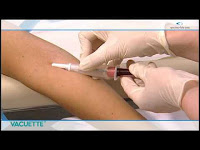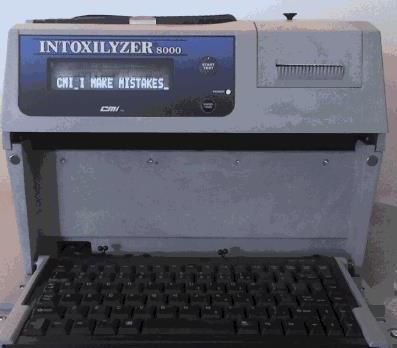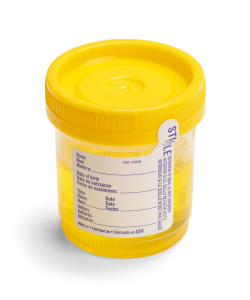 In September of 2014, CW was driving his motorcycle in northwestern New York and collided with another motorcycle. A police officer responded to the accident scene and reportedly noticed the odor of alcohol on CW. The officer asked CW to take a breath test, and CW refused. The officer ultimately obtained a blood sample from CW and charged him with DWI (known as OVI in Ohio). The officer then sent the blood sample to be tested. The test revealed a blood alcohol content of 0.00. Last week, five months after CW was charged with DWI, the case was finally dismissed, as reported by the Genesee Sun.
In September of 2014, CW was driving his motorcycle in northwestern New York and collided with another motorcycle. A police officer responded to the accident scene and reportedly noticed the odor of alcohol on CW. The officer asked CW to take a breath test, and CW refused. The officer ultimately obtained a blood sample from CW and charged him with DWI (known as OVI in Ohio). The officer then sent the blood sample to be tested. The test revealed a blood alcohol content of 0.00. Last week, five months after CW was charged with DWI, the case was finally dismissed, as reported by the Genesee Sun.
Articles Posted in DUI/OVI blood/breath/urine tests
Forensic Gas Chromatography For Lawyers
 Last week, I completed a short course in gas chromatography. Completing the course reminded me of what Stephen Covey used to say: “To know and not to do is really not to know.” He is so right. It’s one thing to know the law of blood and urine testing. It’s a very different thing to know the science of blood and urine testing. To know the science, you have to do the science, and lawyers typically do not have the opportunity to do the science. Now, however, lawyers get to do the science of gas chromatography in a short course presented by the American Chemical Society.
Last week, I completed a short course in gas chromatography. Completing the course reminded me of what Stephen Covey used to say: “To know and not to do is really not to know.” He is so right. It’s one thing to know the law of blood and urine testing. It’s a very different thing to know the science of blood and urine testing. To know the science, you have to do the science, and lawyers typically do not have the opportunity to do the science. Now, however, lawyers get to do the science of gas chromatography in a short course presented by the American Chemical Society.
What Is The Irony Of Urine Testing In Ohio DUI/OVI Cases?
Most states acknowledge urine testing is not an accurate way to measure blood alcohol concentration, and Ohio is one of the few states which still uses urine alcohol testing for DUI/OVI cases. Ohio law makes urine tests admissible in court so long as law enforcement agencies follow state regulations. Some of those regulations address scientific reliability, and some of those regulations address administrative issues. As a result, urine tests are often inadmissible, not because they are scientifically unreliable, but because the government did not follow its own rules.
Acid Reflux And Breath Tests In Ohio DUI/OVI Cases
Somewhere between ten percent and twenty percent of Americans have GERD: Gastro Esophageal Reflux Disease. While the advertisements by pharmaceutical companies have made GERD common knowledge, it is no so commonly known that this medical condition can inflate the result of an alcohol breath test. When the defendant in an OVI case has GERD, lawyers and judges find themselves at the intersection of law and science.
Unanimous Supreme Court Reinforces Defendant’s Right To Challenge Breath Test Results In Ohio DUI/OVI Cases
 For three decades, lawyers and judges have been misinterpreting the case of State v. Vega. In Vega, the Ohio Supreme Court held defendants in DUI/OVI cases may not attack the general reliability of breath-testing machines. Some lawyers and judges interpret Vega as if it says defendants are not permitted to make any challenge to the breath test result. This misinterpretation of the Vega decision may exist in part because most people have not actually read the decision. It’s like the telephone game where the statement made by the first person in the game is modified drastically by the time the statement is repeated by the last person in the game. A few days ago, the Ohio Supreme Court clarified the holding of Vega in a case which will hopefully end the abuse of defendants’ rights resulting from the misinterpretation of Vega.
For three decades, lawyers and judges have been misinterpreting the case of State v. Vega. In Vega, the Ohio Supreme Court held defendants in DUI/OVI cases may not attack the general reliability of breath-testing machines. Some lawyers and judges interpret Vega as if it says defendants are not permitted to make any challenge to the breath test result. This misinterpretation of the Vega decision may exist in part because most people have not actually read the decision. It’s like the telephone game where the statement made by the first person in the game is modified drastically by the time the statement is repeated by the last person in the game. A few days ago, the Ohio Supreme Court clarified the holding of Vega in a case which will hopefully end the abuse of defendants’ rights resulting from the misinterpretation of Vega.
New Book Provides Readers With Valuable Information About DUI/OVI In Ohio
 It won’t win a Pulitzer Prize, it will not be mentioned with the New York Times best sellers, and it will not be at the top of readers’ ‘wish lists’. In fact, most people may not find it very interesting. If you are charged with a DUI/OVI in Ohio, however, this book suddenly becomes a must-read. I’m talking about the new book: I Was Charged With DUI/OVI, Now What?!
It won’t win a Pulitzer Prize, it will not be mentioned with the New York Times best sellers, and it will not be at the top of readers’ ‘wish lists’. In fact, most people may not find it very interesting. If you are charged with a DUI/OVI in Ohio, however, this book suddenly becomes a must-read. I’m talking about the new book: I Was Charged With DUI/OVI, Now What?!
Driver’s License Suspended For Inability To Urinate On Cue
 Imagine that you are arrested for DUI (called OVI in Ohio), and the officer takes you to a police station to take a urine test. You want to comply, because you’re sure the test will prove you are under the legal limit, but you don’t need to go. In fact, you can’t go. You drink a bunch of water and wait a while, but you still can’t go. The officer then says you refused the urine test, so your driver’s license is suspended for one year.
Imagine that you are arrested for DUI (called OVI in Ohio), and the officer takes you to a police station to take a urine test. You want to comply, because you’re sure the test will prove you are under the legal limit, but you don’t need to go. In fact, you can’t go. You drink a bunch of water and wait a while, but you still can’t go. The officer then says you refused the urine test, so your driver’s license is suspended for one year.
Margin Of Error In Ohio DUI/OVI Alcohol Tests

From your bathroom scale to a police officer’s laser gun, every measurement device has a margin of error. For a device to be considered reliable, the margin of error must be known (and should be small!). In a recent Ohio DUI / OVI case, the court decided the admissibility of test results from a device with an unknown margin of error.
State v. Lancaster May Change Interpretation Of Ohio Breath Testing Law
 Intoxilyzer 8000 Declared Unreliable In Ohio DUI/OVI Case
Intoxilyzer 8000 Declared Unreliable In Ohio DUI/OVI Case
This blog has discussed Intoxilyzer 8000 litigation in many previous posts. One of those posts (November 18, 2012) mentioned the case of State v. Lancaster in the Marietta Municipal Court. I was asked to help with that litigation as counsel for Lancaster. Like many of the I-8000 cases throughout Ohio, the Lancaster case involves the reliability of the I-8000. Unlike most of the other cases, however, the Lancaster case includes testimony of expert witnesses for the prosecution and defense. After five days of testimony, the verdict is in, and the breath test is out! The decision has already been appealed and is staged to possibly change the interpretation of breath-testing law in Ohio.
Court Rescues Intoxilyzer 800 For Use In Ohio DUI/OVI Cases

But for a technical legal issue that may only be interesting to an Ohio DUI/OVI lawyer, the case of State v. McMahon would be pretty generic. An officer pulled him over for speeding, noticed the odor of alcohol, administered field sobriety tests, arrested him, gave him a breath test on an Intoxilyzer 8000, and charged him with O.V.I. McMahon filed a motion to suppress the results of the breath test, claiming the Department of Health was required to make rules for obtaining ‘operator access cards’ (to operate the I-8000) and never did. The trial court agreed with McMahon and threw out the breath test.
 Columbus OVI/DUI Attorney Blog
Columbus OVI/DUI Attorney Blog



